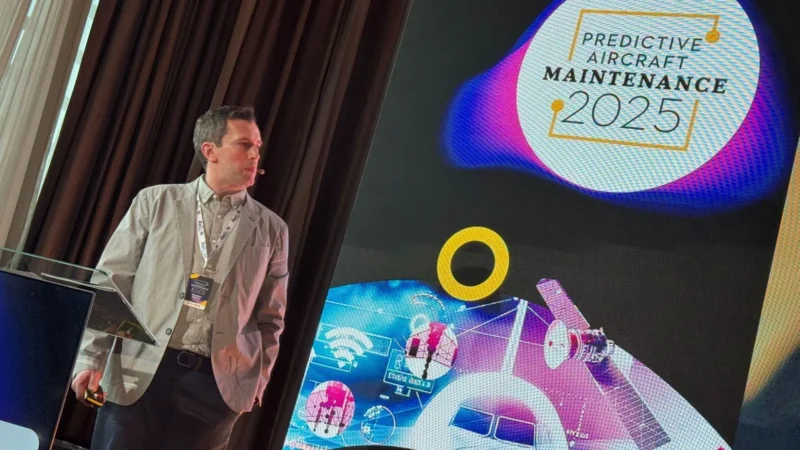PAM Dublin 2025: BA details major shift towards predictive maintenance
British Airways outlined the scale and speed of its predictive maintenance transformation during last week’s PAM 2025 conference in Dublin, with senior technical engineer Stephen Rayner revealing how the airline has begun to reshape engineering processes across its fleet.
Rayner said the programme represents “a fundamental shift in the way BA Engineering is working”, moving the organisation from reactive interventions to proactive and predictive strategies designed to improve operational reliability.
He explained that early-stage data analysis played a critical role in securing internal support for change. “The data in the initial stages showed us what was achievable,” he noted. “It helped us get buy-in from teams, because once people understood the benefits, everything moved much faster.”
During his presentation to 250+ delegates, Rayner highlighted the 787 brake wear monitoring project as a clear example of the value achieved so far.
BA has moved from daily visual checks and short-notice brake changes to a predictive model using Boeing AHM data to plan replacements during optimal downtime.
The initiative has avoided premature removals and reduced brake lockout events, supporting operational performance and fuel burn reductions.
The airline reports savings of around 430,000kg of CO2 and 120,000kg of fuel since implementation.
Rayner also detailed BA’s work to address 787 ram air fan power issues caused by clogged heat exchangers. A new active flush system, including redesigned tooling, has delivered significant improvements in exit air velocities and reduced ATA 21 delays. The project, he said, showcases the value of cross-functional collaboration and targeted engineering development.
“BA’s predictive maintenance programme has grown rapidly throughout 2025,” explained Rayner – scaling from initial 787 alerts to cover the A320 and A350 fleets. The airline is now monitoring over 120 predictive alerts across its major aircraft types and working with Boeing on future developments, including lavatory vacuum generators, electric brake actuators and common motor starter controllers.
Rayner stressed the importance of engagement at every level of the organisation. “Sharing the philosophy with everyone is important – we need to make sure everyone is on our journey,” he told delegates, referencing BA’s shift briefings, supplier engagement and leadership updates as central to the programme’s success.
The structured rollout – from project launch and strategy setup in April 2025 to fleet-wide expansion by November – was underpinned by trade union engagement, stakeholder workshops and updates to senior management.
Rayner left delegates with key lessons from the journey so far, emphasising the need for leadership support, flexibility, collaboration and continuous feedback loops. “Listening to our teams has been essential,” he said. “It’s their insights that help us refine the alerts and identify where predictive maintenance can genuinely add value.”
READ MORE NEWS: Industry leaders unite at PAM Dublin 2025 to accelerate predictive maintenance
